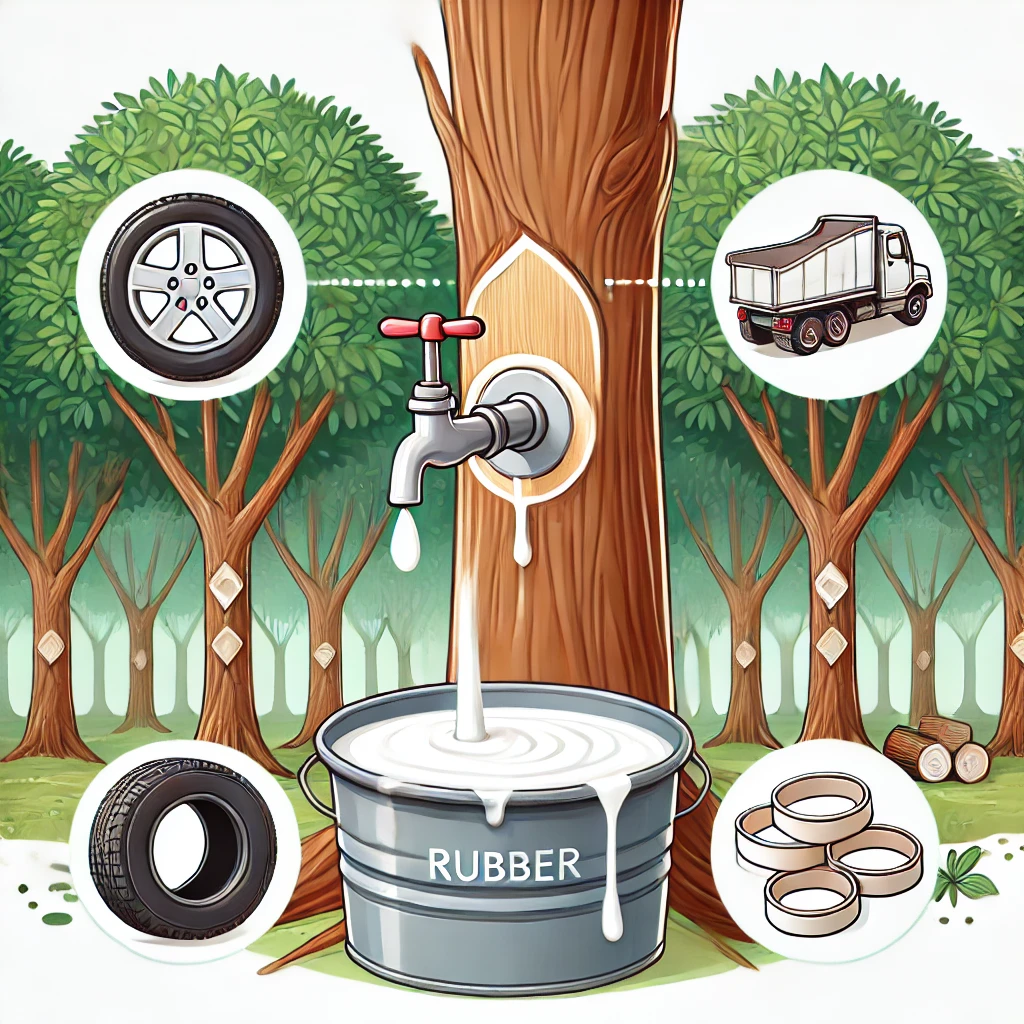Derive
Definition
Derive refers to the process of obtaining or receiving something from a particular source or origin. It can also mean tracing the origin of something, such as words, ideas, or substances, back to a specific source.
Parts of Speech
- Verb
Pronunciation
American English
- IPA Pronunciation: /dɪˈraɪv/
- Respelling: dih-RYV
British English
- IPA Pronunciation: /dɪˈraɪv/
- Respelling: dih-RYV
The pronunciation of "derive" is the same in both American and British English.
Etymology
The word "derive" comes from the Latin word "derivare," meaning "to lead or draw off," which itself is derived from "de-" meaning "down from" and "rivus," meaning "stream." It entered Middle English in the late 14th century and has since evolved to describe the act of obtaining or tracing the origin of something.
Derivatives
- Derivation (noun)
- Derivative (adjective/noun)
- Derivable (adjective)
- Derived (adjective)
- Deriver (noun)
Synonyms
- Obtain
- Extract
- Originate
Antonyms
- Cause
- Invent
- Create
Usage
The term "derive" is commonly used in various fields, including science, linguistics, and philosophy. In science, it may refer to obtaining a substance from a source, such as deriving energy from the sun. In linguistics, it is used to explain the origin of words, while in philosophy or logic, it may refer to drawing conclusions from premises. The term is versatile and used in both formal and informal contexts.
Related Terms
- Source: The point of origin or beginning of something.
- Infer: To deduce or conclude information from evidence and reasoning rather than from explicit statements.
- Deduce: To draw a conclusion based on the information or evidence provided.
Detailed Definitions
Verb
- To obtain something from a specified source: Refers to the process of gaining or receiving something from a particular origin.
- Example: "The medicine is derived from a plant."
- To trace the origin of something: Refers to the act of determining where something comes from or how it evolved.
- Example: "Many English words are derived from Latin."
derive



🇨🇳 Mandarin (Chinese)
- 得到 (dé dào) - Obtain or get
- IPA: /tɤ˨˩˦ tɑʊ˥˥/
- Respelling: DUH dow
- 源于 (yuán yú) - Originate from
- IPA: /jwan˨˩˦ y˨˩˦/
- Respelling: YWAN yoo
🇮🇳 Hindi
- प्राप्त करना (prāpt karnā) - Obtain
- IPA: /praːpt kəɾnɑː/
- Respelling: PRAAPT kar-naa
- उत्पन्न होना (utpann honā) - Originate from
- IPA: /ʊtpʌn ɦoːnɑː/
- Respelling: ut-PUN ho-naa
🇪🇸 Spanish
- Derivar - Derive
- IPA: /deˈriβar/
- Respelling: deh-REE-var
- Provenir - Come or originate from
- IPA: /pɾoˈbeniɾ/
- Respelling: pro-VEN-eer
🇫🇷 French
- Dérivé - Derive
- IPA: /deʁive/
- Respelling: deh-REE-vay
- Provenir - Come from
- IPA: /pʁɔ.və.niʁ/
- Respelling: pro-veh-NEER
🇸🇦 Modern Standard Arabic
- استمد (istamadda) - Derive
- IPA: /is.taˈmad.da/
- Respelling: is-ta-MAD-da
- نشأ من (nasha’a min) - Originate from
- IPA: /na.ʃaːʔ min/
- Respelling: NA-shaa min
🇧🇩 Bengali
- অর্জিত করা (ôrjit kôra) - Obtain
- IPA: /ɔrd͡ʒit kɔra/
- Respelling: OR-jit KOR-a
- উৎপন্ন হওয়া (utponn hôwa) - Originate from
- IPA: /utpɔnn hɔwa/
- Respelling: ut-PONN HO-wa
🇷🇺 Russian
- Производить (Proizvodit') - Derive
- IPA: /prəɪzˈvɔdʲɪtʲ/
- Respelling: pro-iz-VOD-it'
- Происходить (Proiskhodit') - Originate from
- IPA: /prəɪsˈxodʲɪtʲ/
- Respelling: pro-is-KHO-dit'
🇵🇹 Portuguese
- Derivar - Derive
- IPA: /dɛˈɾivɐr/
- Respelling: deh-REE-var
- Provir - Come from
- IPA: /pɾoˈviɾ/
- Respelling: pro-VEER
🇮🇩 Indonesian
- Diturunkan - Derived
- IPA: /diturunˈkan/
- Respelling: dee-too-roon-KAN
- Berasal dari - Originate from
- IPA: /bəˈrasal ˈdari/
- Respelling: buh-RAH-sal DAH-ree
🇩🇪 German
- Ableiten - Derive
- IPA: /ˈaːblʌɪtən/
- Respelling: AH-blite-en
- Herkommen - Come from
- IPA: /hɛʁˈkɔmən/
- Respelling: her-KOM-en
🇯🇵 Japanese
- 導く (michibiku) - Derive or lead
- IPA: /mit͡ɕibikɯ̟ᵝ/
- Respelling: MEE-chee-bi-koo
- 由来する (yurai suru) - Originate from
- IPA: /ju.ɾai su.ɾu/
- Respelling: YOO-rye soo-roo
🇻🇳 Vietnamese
- Xuất phát - Originate or start from
- IPA: /sʷəːt˧˧ pʰaːt˧˧/
- Respelling: SWUAT phat
- Rút ra - Derive or infer
- IPA: /ɹut˧˧ ʐaː˧˧/
- Respelling: ROOT zah
🇰🇷 Korean
- 유래하다 (yuraehada) - Originate from
- IPA: /ju.ɾɛ.ha.da/
- Respelling: YOO-ray-HA-da
- 도출하다 (dochulhada) - Derive or deduce
- IPA: /do.t͡ɕʰul.ha.da/
- Respelling: DO-chul-HA-da
🇹🇷 Turkish
- Türemek - Derive or stem from
- IPA: /tyːreːmek/
- Respelling: TYOO-ray-mek
- Köken almak - Originate from
- IPA: /køːken almak/
- Respelling: KOH-ken AL-mak
🇵🇰 Urdu
- حاصل کرنا (hasil karna) - Obtain or derive
- IPA: /ɦɑː.sɪl kəɾ.nɑː/
- Respelling: HAAS-il kar-NA
- اخذ کرنا (akhz karna) - Derive or draw out
- IPA: /ʌxz kəɾ.nɑː/
- Respelling: AKH-z kar-NA





